Schedule a Call Back
Here’s how we can rescue MSMEs
 Industry News
Industry News- May 04,20
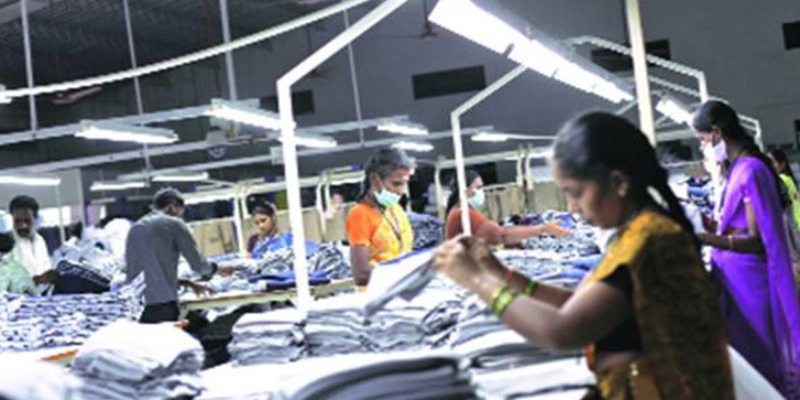
The Supreme Court has chosen to turn a deaf ear to the pleas of the small businesses of the country wanting it to ward off the looming threat of penal action under the Ministry of Home Affairs order and the Disaster Management Act. Under this order and the provisions of the Act, enterprise owners would have to pay salaries and wages to their employees compulsorily even while their businesses are under lockdown or face penal action.
Therefore, small business owners have now joined the clamour for loans to facilitate the payment of salaries and wages. Meanwhile, experts are debating whether India has provided enough of an economic stimulus in comparison to western economies. Printing of currency seems to be cited as a ‘nuclear’ option or a last resort, with several international experts having given their opinions on this. Economic experts have also been debating what the exact GDP growth figure would be, although they have finally conceded that no one really knows the right answer. More practical discussions are centring on the need to lift the lockdown, which is well past a 40-day period.
In all the above, two vital aspects are being completely missed:
- What is really required to kickstart the economy?
- Do we really need to borrow or print the money to fund pump priming, or do we have funds from internal accruals?
The economy is currently in shock. It has been disrupted and gone into slumber. It is gripped by anxiety and fear. Large enterprises can bear this shock as they are insulated with reserves. Rajiv Bajaj, Managing Director, Bajaj Auto, candidly confessed that his company is well insulated by accumulated reserves and can ride the rest of the year without subjecting employees to any difficulty.
But the overwhelming majority of India’s businesses are small—99 per cent of them have an annual revenue of less than Rs 2.5 billion. To give this more perspective, of the 63.3 million MSMEs in India, 63 million are micro enterprises; i.e. their investment in plant and machinery is under Rs 2.5 million in manufacturing and their investment in equipment is under Rs 1 million if they are in services. They employ 110 million of the workforce of India. So even though they are estimated to be 63.3 million in number, only about 12 per cent of them (or 700,000) file tax returns. Yet, they collectively contribute to over 48 per cent of India’s exports.
To save the 63.3 million MSMEs, extending loans for paying salaries and wages seems like financial support—but it may well be laying a debt trap for them. Already, the three-month moratorium provided by banks for EMIs is understood to carry interest for these three months too, thereby just offering a deferment of the pay-out and not the liability. Now, a loan to tide over a wage bill that apparently appears a foolhardy decision to the enterprise owner owing to the collapse of the demand funnel due to the lockdown would prove to be a death knell for the business. The enterprise owner may prefer to lay off staff and scale down the business, picking up the threads and scaling back up when things normalise. But unnecessarily forceful implementation of the Disaster Management Act is likely to kill the enterprise.
Before we address how to help the MSMEs undertake their expenses, let us examine avenues for creating demand.
- Procurement by PSUs: In 2018-19, PSUs procured Rs 400 billion worth of purchases from MSMEs while in 2019-20, procurement fell by 10 per cent to Rs 360 billion. An increase in the target for public-sector procurement can provide a boost to demand for MSME produce. More important, as we are looking at restarting the economic engine, an immediate announcement of a mega procurement program could spur economic activity.
- PSU divestment: The State Trading Corporation (STC), whose corporate objectives include facilitating services to small and medium exporters and importers, suffered a loss of Rs 8.8 billion. Its exports fell from Rs 2.66 billion to Rs 110 million from 2017-18 to 2018-19 and banks have initiated recovery proceedings against the company for non-payment of loans. This company has failed to provide the much-needed help to the MSME sector and while unions opposed the divestment of STC, it needs to be done if we want professionals to deliver on its objectives. Private ownership has enhanced value. For instance, Hindustan Zinc has 10 times more production now under private ownership compared to when it was a PSU. BSNL needed an infusion of Rs 720 billion owing to losses while private telecom companies notched up handsome values. PSU divestment needs to be undertaken on a war footing. While the Government nationalised 29 banks in 1980, HDFC Bank, set up in 1994, now has a market value more than the combined market value of all public-sector banks! If value needs to be created, it is high time the Government took the most logical step of divesting equity from public-sector banks, making them more accountable and better regulated.
- Rural projects: The rural economy is better placed during this current crisis to bounce back. Production of most crops for the agricultural year 2019-20 have created records, especially in food grains. Projects in the rural sector like the Pradhan Mantri Gram Sadak Yojana, irrigation projects, AMRUT, etc, can be carried out with greater speed and can connect villages to centres of prosperity.
- Use of talent bank: The Government must appoint an industry taskforce with eminent captains like Nandan Nilekani, Raghuram Rajan, Anand Mahindra, Aditya Puri, Rajiv Bajaj, Uday Kotak, Sanjiv Bajaj, etc; they should be asked to provide a COVID rescue plan within 21 days.
Suggestions for an MSME rescue plan
Here are some innovative ways to help MSMEs overcome the financial debacle caused by the COVID-19 pandemic:
- Allow MSMEs to withdraw 50 per cent of taxes paid over the past three years as a loan at deeply discounted interest rates. This will reward high taxpayers. High taxpayers would also be companies that are profit-making and, therefore, those that contribute positively to the country’s exchequer.
- Create a MSME Venture Fund contributed by private and public banks and headed by a banker from private banking/corporate. This fund would invest into COVID Convertible Bonds issued by MSMEs at a very reasonable interest rate, payable after a moratorium of 12 months, and convertible into equity as an option after 24 months. Here, the MSME owner would calibrate the amount to be borrowed as the owner would not like the business to slip into the fund’s ownership.
- The COVID-19 pandemic and the consequent lockdown has broken many a business model. Many businesses will not survive; for instance, travel agencies, which were already on the decline with the advent of online bookings, or car rental services that were threatened by taxi aggregators like Uber and Ola. Therefore, provision of loans to such businesses would only exacerbate the situation. These businesses should be allowed to dissolve rather than be saved.
- Personal insolvency law should be introduced so that those enterprises owned by proprietors and partners have an exit strategy and quick dissolution process. This would prevent liabilities from compounding and further intensifying the NPA mess.
- PSUs and large corporates are delaying payments of MSMEs and the MSME owner does not complaint for fear of losing their patronage. So, a provision of a bill discounting scheme, like the Trade Receivable e-Discounting System (TReDS) on the RXIL exchange, needs to be accelerated. The recent TReDS MoU with GeM (Govt E-Marketplace) is a step in the right direction with 57,531 MSME sellers and service providers registered on the GeM portal. But the scale needs to grow tenfold to make a significant difference. In today’s times, this may help 90 per cent of MSMEs and the scale of the platform can grow exponentially. RXIL has 445 corporates (including PSUs), 1,521 MSMEs, and 35 banks and NBFCs on board and has discounted around Rs 30 billion over the past three years. If the number of corporates on board increases, this can become the platform to go to for raising working capital by selling trade receivables. Currently, this platform is also facing a challenge as the applicability of the guidelines on the three-month moratorium are not clear for it.
- Allow companies to rework salaries and wages with their employees rather than interfere and threaten companies and enterprises with the provisions of the Disaster Management Act. This will prevent layoffs as even employees know that they would not find jobs so easily in the current atmosphere.
- It is time to reward honesty. Therefore, the Government must look toward extending financial assistance to the 700,000 taxpaying MSMEs on priority by allowing them an extension of their working capital by 50 per cent without additional security with a moratorium on interest for 12 months.
- During this deadly outbreak, infrastructure projects are the safest to execute as these are mostly located outside city limits, except for metro rail and water sanitation projects. Infrastructure projects like roads, railways, airports, ports, power, renewables, etc, keep the daily wage earner employed and fed. These projects also have an extremely high multiplier effect on core industries and the subsequent supply chain.
- Defence manufacturing for self-sufficiency would involve enabling Indian MSMEs into manufacturing for the Ministry of Defence. These projects can also create a demand pull and crank up the economic engine.
- The Ministry of Railways has also laid out an ambitious Rs 1.6 trillion plan for 2020-21. This should be rolled out by empanelling and engaging MSMEs.
But where are the funds?
Here are the opportunity to raise funds for the Government:
- Tax disputes under the Vivaad Se Vishwas scheme, which can release at least Rs 1 trillion as disputes, to the value of Rs 9 trillion are on the table. Officers can conduct video conferencing with assesses and their advisors and clear the backlog even during the lockdown period. The released funds would reach taxpayers and therefore meet the economic needs of businesses.
- Bring PSUs for IPO divestment and raise funds. This serves the three purposes of building value, gaining liquidity and creating accountability.
- Mines held by licensees that have not been worked upon should be revoked and put up for rebids. Even PSUs have been reticent in exploring mines allotted to them. All these are not generating any income and the re-issuance of these leases can generate funds. (Use the provisions of the Disaster Management Act here to skirt around the MMDR Act, if required.)
- Land banks lying idle with PSUs should be aggregated under a Land Exchange & Development Corporation, which would then have an integrated view of the utilisation of land available. Many land parcels could simply be exchanged, providing better utilisation for the land parcel.
- Stop buying land for road projects. This will save the Government Rs 1.89 trillion. Instead, it should roll out the ‘land-pooling’ scheme that has been experimented with in Andhra Pradesh and the NAINA region in Navi Mumbai. The scheme has multiple advantages: The landowner becomes a stakeholder and can be guaranteed rent. He does not get a windfall that throws his life off balance. He can be provided a marginal land piece as part of the compensation package so that he can continue tilling. The budget for roads is then deployed only towards their construction. Meanwhile, NHAI must continue to monetise toll-yielding assets by attracting long-term funds from foreign investors and use the money to construct roads.
The Indian economy wasn’t in great shape even before we were hit by the COVID-19 pandemic. Our GDP was slipping, GST revenues were already trailing, and tax revenues had suffered a huge shortfall. The uncertainty of the situation is unnerving and giving everyone the jitters. The Government must indicate a three-month plan, if not a longer one, and course-correct if required.
In conclusion, it is time to think of out-of-the-box solutions to change the narrative. Any delay in launching a rescue mission may be fatal for the economy.
Related Stories
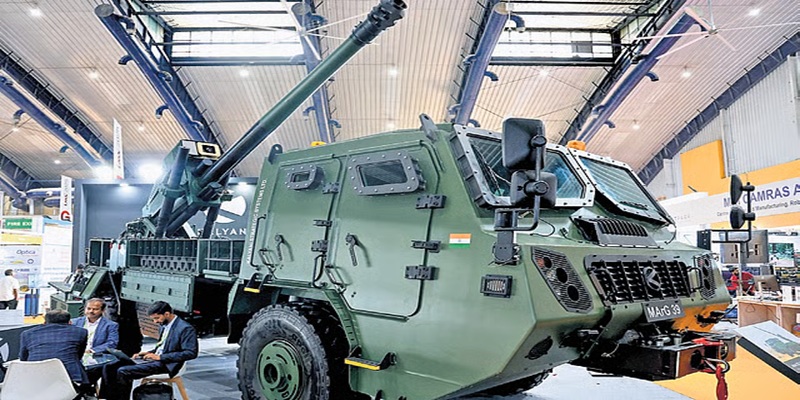
India to Add $500 bn Annually to Global Economy by 2030: Joshi
Minister highlights MSME growth at India Manufacturing Show 2025
Read more
India’s Decarbonisation Journey: Turning Climate Challenge into Opportunity
While decarbonisation is increasingly becoming a prerequisite to access premium global markets, India's path to net-zero by 2070 is complex. However, with coordinated action, strategic investments, ..
Read more
OMC Power aims 1 GW target, to scale up BESS deployment: Rohit Chandra
In this interview with Rakesh Rao, Rohit Chandra, MD and CEO of OMC Power, highlights the role of the distributed renewable energy sector in driving India’s energy transition.
Read moreRelated Products
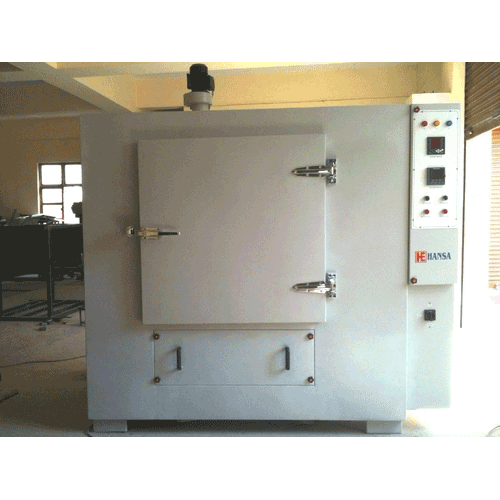
Heavy Industrial Ovens
Hansa Enterprises offers a wide range of heavy industrial ovens.
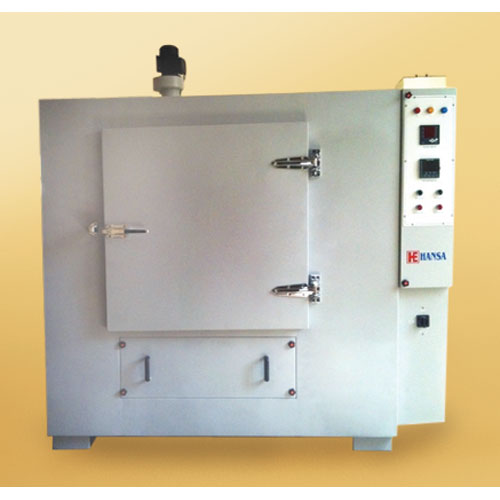
High Quality Industrial Ovens
Hansa Enterprises offers a wide range of high quality industrial ovens. Read more
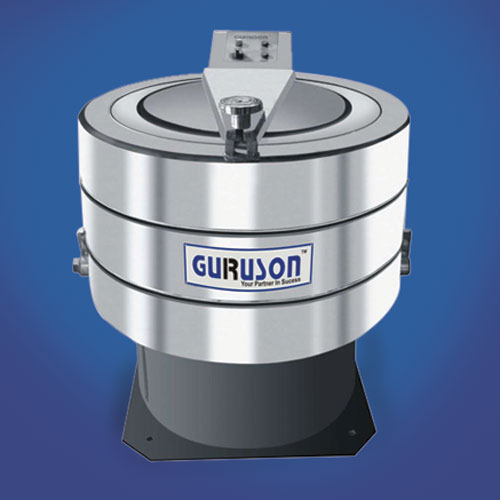
Hydro Extractor
Guruson International offers a wide range of cone hydro extractor. Read more














